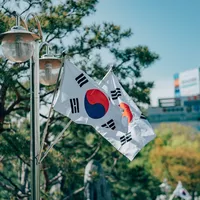시제-과거
|Vergangenheit
|past
czas|przeszły
Zeitform - Vergangenheit
tense - past
Tiempo - Pasado
Temps - Passé
時制・過去
tenso - passado
Время - прошедшее
시제-과거
|past
czas|przeszły
Tense - Past
tenso - passado
어제저녁에 3시간 동안 프랑스어를 공부했어요.
gestern Abend||||ich habe gelernt
last night||||I studied
wczoraj wieczorem|godzin|||
Last night I studied French for 3 hours.
Estudei francês por 3 horas ontem à noite.
그들은 이웃에 집을 샀다.
|in der Nachbarschaft||kaufen
|in the neighborhood||bought
They bought a house in the neighborhood.
Eles compraram uma casa no bairro.
콘서트는 재밌었어?
das Konzert|
concert|was fun
Did you enjoy the concert?
Gostaste do concerto?
응 완전 재밌게 놀았지.
||sehr lustig|habe gespielt
|completely||had fun
Yes, it was fun.
Sim, eu me diverti muito
모든 걸 중요하게 생각했었어?
||wichtig|habe gedacht
everything||important|had thought
Was everything important?
Você considerou tudo importante?
아니 어떤 건 잊어버리기도 했지.
|||vergessen habe|habe ich
|||forget|
No, I forgot something.
Não, esqueci uma coisa.
왜 늦게 왔어?
|late|
Why are you late?
porque voce esta atrasado
잠들어 버려서 늦게 왔어.
eingeschlafen|verdammt||
fell asleep|fell||
I'm late because I fell asleep.
Cheguei tarde porque adormeci.
제시간에 못 일어났어.
rechtzeitig||aufstehen
on time||didn't wake up
I couldn't wake up on time.
não acordei na hora
돈은 들고 왔어?
money|bring|
Did you bring the money?
você trouxe o dinheiro?
응 돈 가지고 왔어.
||with|
Yes, I brought the money.
sim eu trouxe dinheiro
내가 말하는 거 들었어?
|||heard
Did you hear what I was saying?
você me ouviu dizer
어 네가 말하는 거 들었어.
||||ich habe gehört
||talking||
Uh, I heard you talking.
oh eu ouvi você dizer
몇 시에 해가 떴지?
|||aufgegangen
|||rose
What time did the sun rise?
A que horas o sol nasceu?
5시 30분에 해가 떴어.
|||aufgegangen
|||rose
The sun has risen at 5:30.
O sol nasceu às 5h30.
그 사람한테 말 해줬어?
|der Person||hat gesagt
|||told
Did you tell him?
você disse a ele?
어 그 사람한테는 말 해놨어.
||der Person||gesagt
||to that person||told
Uh, I told him.
ai eu disse a ele
그 사람은 사무실에서 언제 나갔나요?
||||hat er verlassen
||in the office||left
When did he leave the office?
Quando essa pessoa saiu do escritório?
5시에 나갔어요.
I left at five.
Eu saí às 5 horas.
어떤 드레스를 골랐니?
|das Kleid|hast du gewählt
|dress|choose
What dress did you choose?
qual vestido você escolheu?
핑크색 드레스로 골랐어요.
rosa|das Kleid|
pink|in a pink dress|picked
I chose a pink dress.
저녁 식사는 끝냈어요?
||hast du beendet
dinner|dinner|finished
Are you done with dinner?
Já terminou seu jantar?
그들은 이미 거의 모든 일을 끝냈어요.
they|already||||finished
They have already done almost everything.
Já fizeram quase tudo.
우리가 도착하기 전에 거의 모든 일이 끝났다.
|ankommen|||||beendet
|arriving|||||finished
Almost everything was done before we arrived.
Quase tudo foi feito antes de chegarmos.
네가 주의를 귀울였으면 이런 일도 없었어.
|Achtsamkeit|gehört|solche|Dinge|nicht gegeben
|attention|listened|||wouldn't have happened
If you've been paying attention, this has never happened.
Se você tivesse prestado atenção, nada disso teria acontecido.
네가 여기 올 때쯤이면 우리가 일을 다 해놨을 거야.
||kommen|zu diesem Zeitpunkt||||fertig gemacht|
|||by the time||||finished|will
By the time you're here, we've done it all.
Quando você chegar aqui, teremos tudo pronto.
내년 이맘때에는 대학교에서 코스 3개를 끝냈을거야.
nächstes Jahr|zu dieser Zeit|Universität|Kurs||beendet haben werde
next year|at this time||courses||will have finished
At this time next year, you probably finished three courses at the university.
A essa altura, no próximo ano, você terá concluído três cursos na universidade.
대학교에서 2년 넘게 중국어를 공부해 왔어요.
||über|Chinesisch||
||for more than|Chinese||
I've been studying Chinese for over 2 years at university.
Eu tenho estudado chinês por mais de 2 anos na universidade.
그들은 최소한 6개월간 마라톤 준비를 해왔어요.
|mindestens|über einen Zeitraum von|Marathon||
|at least|for six months|marathon|preparation|have been doing
They have been preparing for the marathon for at least six months.
Eles estão se preparando para a maratona há pelo menos seis meses.
그들은 하이킹 가려고 생각했지만 비가 내리기 시작했다.
|Wandern||||zu regnen|
|hiking||thought||start|started
They thought of going hiking, but it started to rain.
Eles pensaram em fazer uma caminhada, mas começou a chover.
우리는 이 이벤트를 작년부터 준비해왔었는데 취소할 수 밖에 없었다.
||Veranstaltung|seit letztem Jahr|vorbereitet hatten|absagen mussten|||
||the event|since last year|had been preparing|cancel|||
We have been preparing for this event since last year, but we had to cancel it.
Estamos nos preparando para este evento desde o ano passado, mas não tivemos escolha a não ser cancelá-lo.
그 아이들이 12살이 되던 해에 많은 언어에 노출될 것이다.
|||werden||viele|Sprachen|exponiert werden|
|||was becoming|when||in many languages|be exposed|
The children will be exposed to many languages the year they turn 12.
O ano em que fizerem 12 anos será exposto a muitos idiomas.
우리는 삼일 연속으로 잔업을 할것이며 프로젝트가 끝날 것이다.
|drei|drei Tage hintereinander|Überstunden|werden|das Projekt||
|three|consecutively|overtime|will do|||
We will work overtime for three consecutive days and the project will be over.
Faremos horas extras por três dias seguidos e o projeto estará encerrado.

